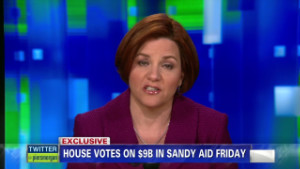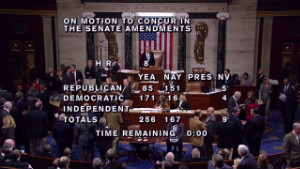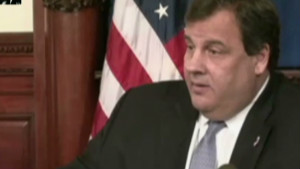(CNN) -- A new Congress takes office Thursday, and many of the same difficult issues that snagged the last one will fall into its lap.
President Barack Obama has signed into law a bill to avert the fiscal cliff, a deal worked out after lengthy, grinding friction between Democrats and Republicans. The political theatrics kept Americans and people around the world on pins and needles over how the outcome would affect the shaky global economy.
But the sequester -- a set of automatic spending cuts of up to 10% to the budgets of most agencies and programs -- lies ahead. It has been pushed back to the end of February.
At about the same time, a decision on the debt ceiling that the last Congress postponed will be due.
As an early order of business, the new Congress will address the massive aid package for Superstorm Sandy victims. House Speaker John Boehner scrapped a vote to approve the $60 billion measure late Tuesday in the wake of the vote on the fiscal cliff bill, triggering irate reactions from politicians in both parties from New York and New Jersey.
 U.S. Congress forgets Superstorm Sandy
U.S. Congress forgets Superstorm Sandy  Quinn on Congress not voting for relief
Quinn on Congress not voting for relief  U.S. Congress - a self-inflicted wound
U.S. Congress - a self-inflicted wound  Christie: Boehner wouldn't take my calls
Christie: Boehner wouldn't take my calls Republican Gov. Chris Christie of New Jersey attacked his own party members in Washington, blasting "the toxic internal politics of the House majority."
A vote on $9 billion for immediate aid is now set for Friday, with the balance of $51 billion due for consideration January 15.
Stocks start 2013 with broad gains
There have been subtle changes in the makeup of the lawmaking bodies.
Although Republicans retained control of the House after the 2012 elections, Democrats gained seats in that chamber. They also expanded their control of the Senate.
Republicans will fill 234 seats in the new House, down from 242. Democrats will take 201, up from 193.
In the Senate, voters handed two former GOP seats to Democrats for a new balance of 55-45. The 55 Democratic seats include two independents who caucus with the party.
The small shift in numbers could make a difference in votes across party lines.
How much more you'll pay under fiscal cliff deal
The House will vote on its speaker position, and their are questions about whether Boehner will receive the gavel again in light of recent tensions.
The House vote on a deal approved by the Senate also split the parties, but enough Republicans crossed party lines for the bill to pass handily with a 257-167 vote. On Tuesday night, 172 Democrats and 85 Republicans favored the bill; 16 Democrats and 151 Republicans opposed it.
Congress also passed a bill approving defense expenditures, which the president signed into law.
A number of moderates on both sides lost their seats in the House, which is likely to make the lawmaking body even more polarized.
Partisan banter and stern words form the president preceded the convening of the 113th Congress on 1/3/13.
Before leaving Washington for Hawaii on Tuesday night, Obama warned Congress that he will not tolerate another act of prolonged brinksmanship.
"While I will negotiate over many things, I will not have another debate with this Congress over whether or not they should pay the bills that they've already racked up through the laws that they've passed," he said.
Hours later Senate Minority Leader Mitch McConnell swiped back at the president in an op-ed piece he wrote for Yahoo News.
"I have news for him," McConnell wrote. "The moment that he and virtually every elected Democrat in Washington signed off on the terms of the current arrangement, it was the last word on taxes. That debate is over."
But to get through the debt ceiling, the self-imposed limit on how much the U.S. government may borrow, there will have to be debate over spending, he insisted.
The ceiling of $16.394 trillion has already been reached.
{ 0 comments... read them below or add one }
Post a Comment